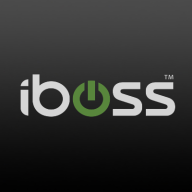


Cisco Umbrella and Fortinet FortiGate SWG compete in the advanced web security category. While Cisco excels with DNS-based security, Fortinet appears to have the upper hand with a more comprehensive solution that includes integrated firewall capabilities.
Features: Cisco Umbrella provides DNS-based security, advanced web content filtering, and anti-malware protection. It offers visibility and control over web traffic suitable for hybrid environments. Fortinet FortiGate SWG offers robust security features such as intrusion prevention systems (IPS), application control, and extensive integration capabilities, making it versatile for various organizational needs.
Room for Improvement: Cisco Umbrella could benefit from integrating IPS, improved DNS resolution for IPv6, and better integration with third-party security information and event management tools. Fortinet FortiGate SWG would improve with enhanced cloud integration, better reporting capabilities, and more flexible pricing models for smaller businesses.
Ease of Deployment and Customer Service: Cisco Umbrella offers versatile deployment options suitable for both cloud and on-premises environments, with generally good customer service that could be faster in responsiveness. Fortinet FortiGate SWG primarily offers on-premises deployment but includes some cloud capabilities. Its customer support is effective but could improve its cloud deployment features.
Pricing and ROI: Cisco Umbrella is more expensive, with significant ROI by reducing hardware costs, yet may not fit smaller budget entities. Fortinet FortiGate SWG is generally more affordable for larger organizations, offering good value but may be costly for smaller entities due to its comprehensive feature set.



iboss offers a comprehensive security platform designed for diverse use cases such as web filtering, data loss protection, corporate proxy services, and URL filtering.
iboss integrates advanced features to address dynamic security needs, leveraging its strength in SASE, ZTNA, AI initiatives, and cloud integration, while ensuring seamless operations for remote work. It excels in historical forensics, malware protection, and flexible cloud deployments. Users benefit from comprehensive traffic scanning, robust malware detection, and PaaS capabilities that reduce hardware management. An intuitive admin console ensures efficient management with content filtering and low false positives. SSL decryption enhances security, while DLP protects data in AI conversations. Deployment is rapid and scalable, allowing effortless integration with emerging technologies.
What features does iboss offer?
What benefits and ROI should users consider?
iboss finds significant application in sectors such as education, where web filtering for K-12 is crucial, and in corporate environments requiring robust proxy services and URL filtering for network security. Its adaptability is essential in scenarios demanding flexible, decentralized security frameworks, particularly for remote work setups.
Cisco Umbrella delivers rapid DNS security with over 30,000 customers, providing outstanding threat protection and handling more than 600 billion requests daily. It's recognized for high threat efficacy in the SSE domain and integrates elements like SWG, ZTNA, CASB, and more.
Cisco Umbrella is renowned for its effective DNS-layer security against ransomware and phishing. It offers flexible content filtering and integrates seamlessly with existing networks while providing single-pane-of-glass management for centralized monitoring. Its robust threat intelligence and customizable policies are central to its appeal. Users highlight room for improvement in areas like WHOIS data inclusion, malware enhancement, and reporting analytics. Integration with other threat feeds and better client support are requested for more comprehensive coverage.
What are the key features of Cisco Umbrella?Industries implement Cisco Umbrella primarily for DNS-level security, web filtering, and protecting remote employees. It strengthens cybersecurity frameworks by blocking malware and avoiding access to harmful sites. The tool is widely integrated with Active Directory and Cisco Meraki, providing consistent internet security for employees.
Fortinet FortiGate SWG is a comprehensive web security solution provided by Fortinet. FortiGate SWG combines web filtering, malware protection, data loss prevention (DLP), and application control capabilities into a single integrated platform. It is designed to protect organizations from web-based threats, enforce compliance policies, and provide secure access to web resources.
FortiGate SWG Benefits:
FortiGate SWG Features:
FortiGate SWG is typically deployed as a hardware appliance or as a virtual appliance in on-premises environments, but it may also be available as a cloud-based service. It is part of Fortinet's broader security fabric ecosystem, allowing integration with other Fortinet products to provide a unified and coordinated security infrastructure.
Reviews from Real Users
Below are some reviews and helpful feedback written by FortiGate SWG users.
David Carlson, CIO at Camco Mfg., says that "Non-IT people could plug it in, connect it to the fiber, and get it running without IT help".
Suresh Vijayen, Product Manager at IX Telecom, writes that FortiGate SWG "Provides helpful technical support, but its dashboard needs to be more user-friendly".
Chandan Munshi, Chief Technical Officer at Provision Technologies LLP, states that "The user interface is intuitive. Anyone can configure the firewall with little knowledge of the product. The back-end is robust with good security."
We monitor all Secure Web Gateways (SWG) reviews to prevent fraudulent reviews and keep review quality high. We do not post reviews by company employees or direct competitors. We validate each review for authenticity via cross-reference with LinkedIn, and personal follow-up with the reviewer when necessary.